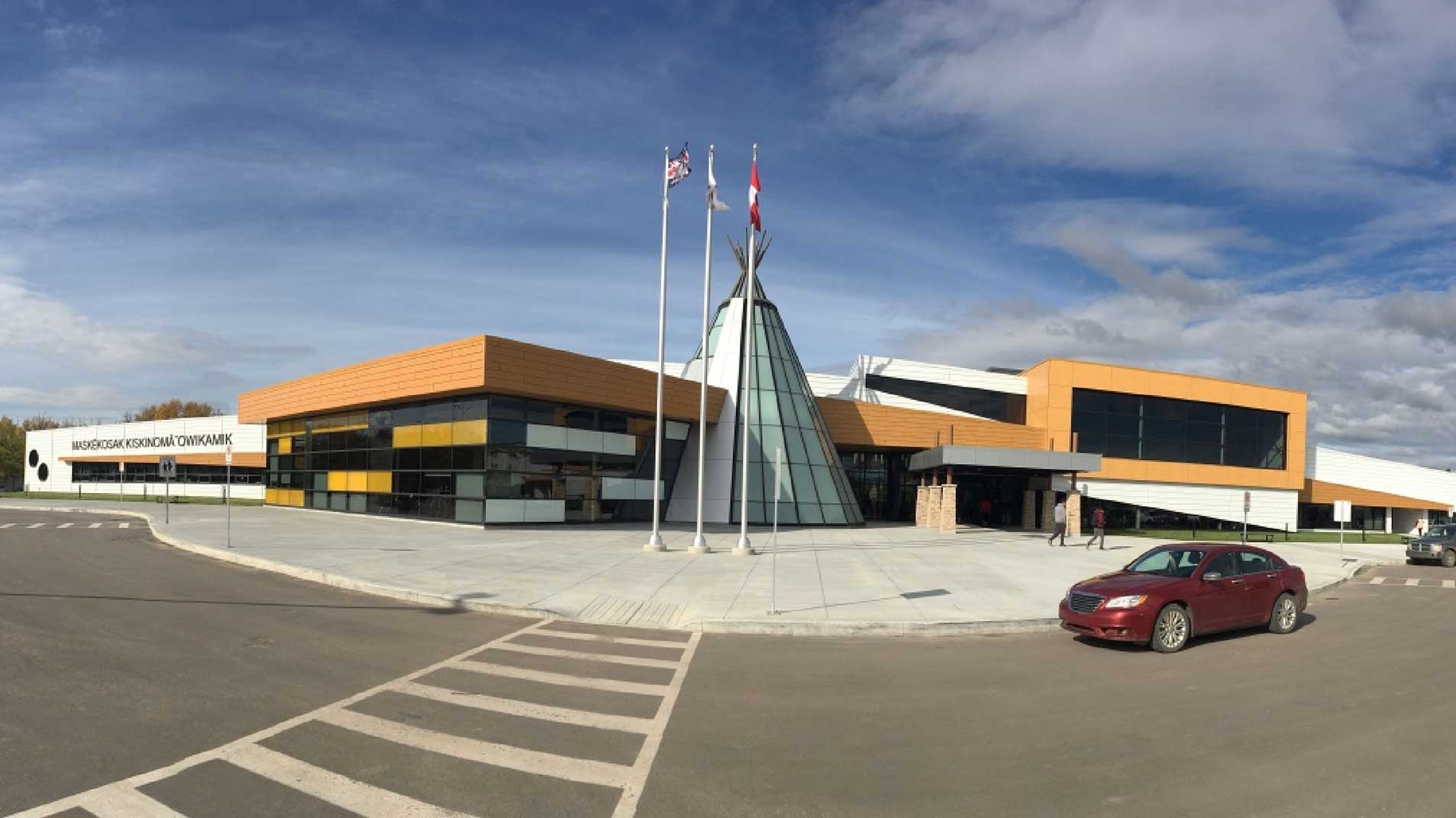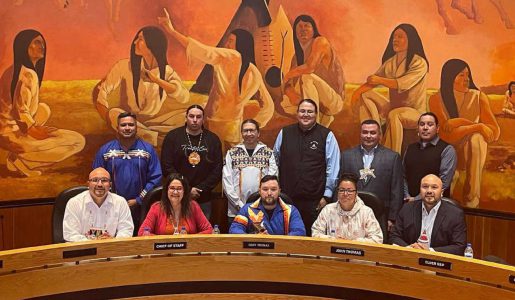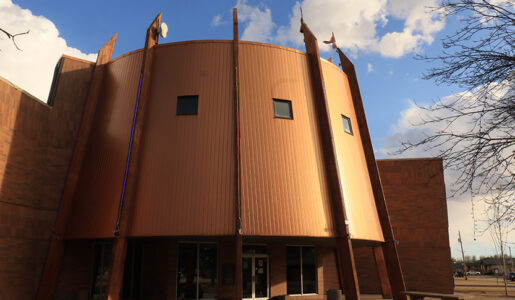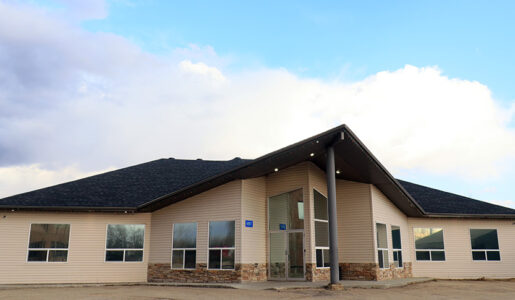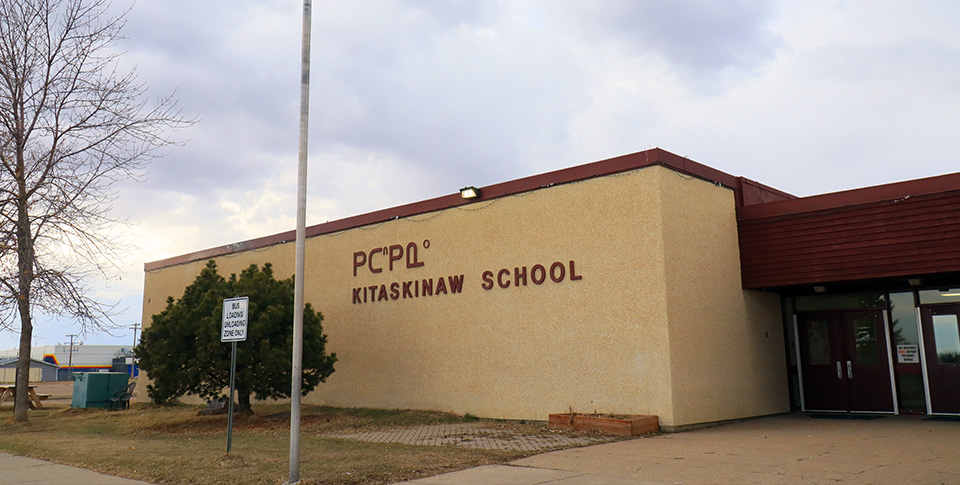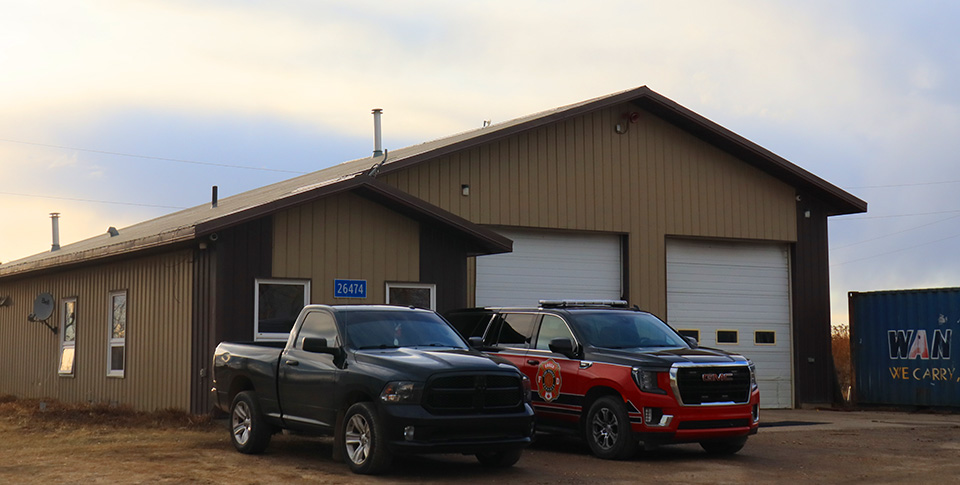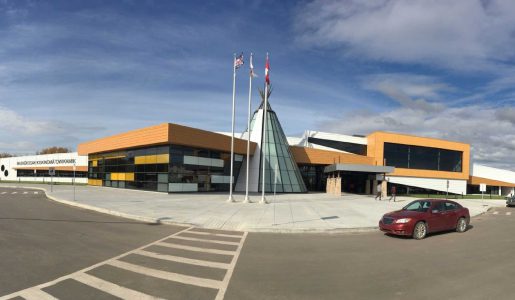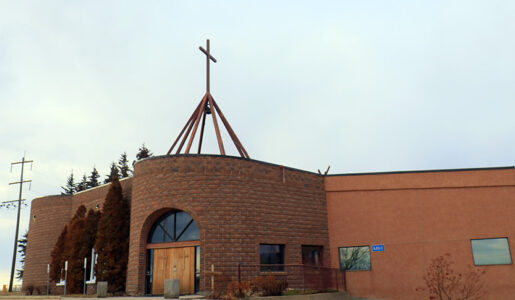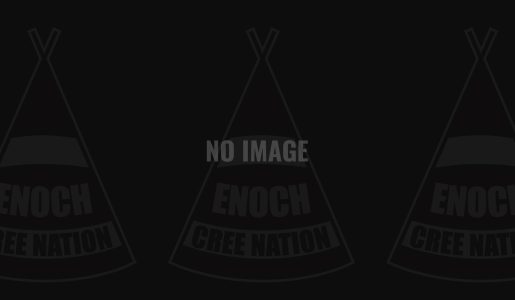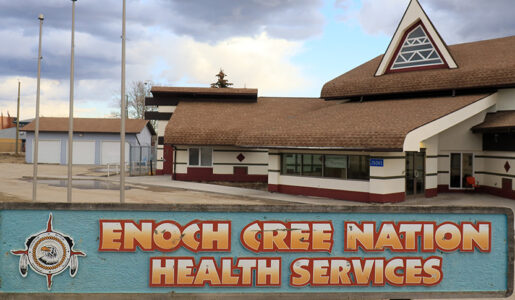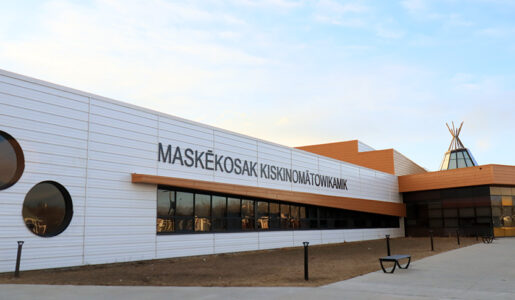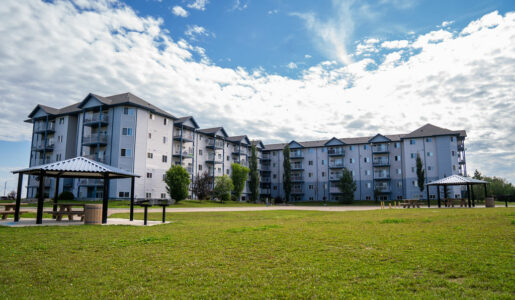Programs
KEA Administration
Our Objectives Include ongoing guidance and support from maskêkosihk kehtêayak. Reclaiming our maskêkosak heritage and principled ways of knowing. The creation and support of fluent nêhiyaw language speakers. Continuous academic improvement and success for all students. Support for students who demonstrate a clear understanding of maskêkosihk nêhiyawak Foundational Principles. A quality learning program that exceeds regional, provincial and national standards
Contact
Enoch Day Care Centre
Hours of Operation: Monday to Friday 7:30am to 4:45pm
About Us
Enoch Day Care provides child care services in a safe, secure, and sanitary environment. We strive to provide child friendly stimulation in a healthy and nurturing manner. Our method of care is a Play to Learn approach which is agreed to be the best way of care by early learning experts.
- We serve children aged 12 months to 6 years of age.
- We provide well-balanced breakfasts, snacks and lunch.
- All rooms have planned art/crafts, gross motor, sand/water, circle time, outside play, reading activities, multicultural/diversity awareness and dramatic play.
- We also proved parties for special occasions, such as; holidays, birthdays, year-end
celebrations, etc.
Family Involvement
We maintain an open door policy and happily invite parents to visit during operational hours to observe both the Program and your child(ren)’s interaction with others. Management and staff encourage your involvement in our program and are open to positive feedback to enhance our services. In working together, we believe that a child’s time at the centre will be much more rewarding.
Learning Through Play
What it is
It is recognizing that children learn more when they are engaged in play and that play develops a child’s creativity and problem-solving skills. Play is a healthy part of childhood and not only does it prepare children for learning in school, it promotes strength, coordination and brain development. With this, self-esteem and social skills are built and this aids in the development of friendships. Because of the importance of play for children, it is recognized as a Right of Children by the United Nations Convention on the Rights of the Child.
Play is how children experience their world and bring meaning to it. It models the social framework that builds relationships for life and kindles imagination. Play gives children the chance, in a world where so many carry heavy burdens, to simply be children. It is through play that children learn best.
How we Encourage Play
We provide children with the support, space and time to develop and create their play. The Canadian Child Care Federation suggests that as adults, we must take the time to observe, consult, plan and participate in play, as well as be aware of the potential for learning that play offers.
Types of Play
Enoch Day Care Centre recognizes the different types of play suggested by the Canadian Child Care Federation and incorporates it into our program. The following is only a few types of play you’ll find at our centre:
- Creative: to explore and use their bodies and materials to make and do things.
- Language: by involving children to play with sounds and words.
- Physical: to develop, practise and refine bodily movements.
- Exploratory: practice their physical skills and senses to experience the world around them
Constructive: the use of materials to build and create anything with the use of natural or manufactured materials.
Contact
Head Start/Early Learning Centre of Excellence
Our vision is to build positive relationships with children and families; to guide and educate our children to be kindergarten ready.
Aboriginal Head Start On-Reserve
The Aboriginal Head Start On-Reserve philosophy is to give children an opportunity to learn through play. Enhancing learning through social, physical, intellectual, cognitive and emotional skills, through hands-on experiences. A.H.S.O.R. is committed to reflecting Aboriginal Culture and traditions by ensuring that all children, are nurtured in learning and developing essential skills, with opportunities to stimulate their natural curiosity and eagerness to learn. Culture and Language component will provide children with a positive sense of themselves as Aboriginal children and to build on the children’s knowledge of their Aboriginal languages and experiences of culture in their communities.
Focus on six core components:
- Culture and Language
- Education/School Readiness
- Health Promotion
- Nutrition
- Social Supports
- Parent Involvement
How do I participate in the program?
Priority for eligibility will be given to those children who are:
- First Nation. When program reaches full to capacity children will be put on a wait list until there is space.
- From low-income families.
- 3- 4 years of age by September of starting school year.
- Parents must be willing to commit to volunteer 2 hours each month.
- Children must be fully potty trained.
Regular Classes run from September to June, 4 days a week
Monday-Thursday
A.M Class 9:30-11:30am
Contact
Transportation (KEA Buses)
Coming Soon
Contact
maskekosak kiskinomatowikamik & North Campus
Coming Soon
Contact
kaya pomeh Adult Education
Coming Soon
Contact
Student Services
The Enoch Student Services department provides a variety of services primarily to Off-Reserve Enoch Cree Nation band members to enhance and support their educational needs. It is our goals that students are able to achieve their greatest potential in an educational setting. Success is important for the positive growth of our community members and give them the ability for a good future.
ESS has the following services available:
- Off-Reserve School Fees & Supplies
- Financial assistance for school fees, school supplies, field trips, transportation, tutoring services and sports academies
- Support Services
- Coordinators monitor, support, and encourage students to participate and achieve success in their educational journeys.
- Educational Travel Enhancement
- Financial assistance for an approved school field trip to travel abroad to other countries.
- Honoring Ceremony
- Organize, plan and coordinate a ceremony to recognize student success and achievement for all Enoch Cree Nation Grade 12 and Post-Secondary Graduates.
- We also administer the Post-Secondary Student Program which provides financial assistance to our students to cover the costs of tuition, textbooks, tutoring services, and living allowance:
- Top Up Program
- Monthly financial supplement provided to Post-Secondary students during the academic school year.
- Student Internship/Placement Program
For Enoch Cree Nation in Junior High, High School and Post-Secondary. This occurs during the summer months for students.
